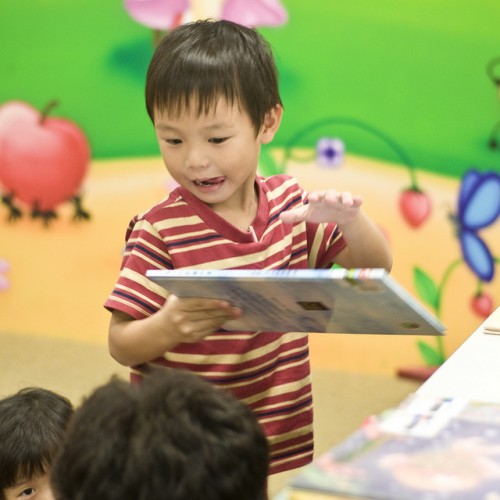It used to be easy to get kids to read. When I was young, there was very little distraction except for TV. Reading books was the only thing to keep myself entertained as I explored the alternative worlds created by authors such as Enid Blyton and R.L. Stine. Unfortunately, the Internet came along and now, there are more distractions than one can keep up with. Facebook, YouTube, online games, and Twitter all mean that books no longer have the spellbinding power they once had.

Benefits of children reading more books
The benefits of getting your kids to read more are tremendous. Below are the 5 top reasons why I think reading is very important to a child’s growth.
- Improving vocabulary: Reading exposes children to many new words that they might not otherwise come across1 in school or their daily lives.
- Understanding the context of words: Many children in Singapore have difficulties scoring well for English comprehension. The primary reason is not understanding the meaning of words when applied in different context. This is where reading comes into play as it exposes the child to the different ways words can be used.2
- Improving concentration: Online media has splintered our attention span. Instead of 30-minute cartoons, there are 1-minute YouTube clips. Instead of news stories, there are now 160-character Twitter headlines. Instead of long editorials, there are 300-word blog posts. For children to cultivate longer periods of concentration, books are the perfect medium.
- Improving memory: According to Maryanne Wolf, director of the Center for Reading and Language Research at Tufts University and author of Proust and the Squid: The Story and Science of the Reading Brain: “A sentence is shorthand for a lot of information that must be inferred by the brain. We are forced to construct, to produce narrative, to imagine,” All these mental activities thus help our children to keep their memory sharper, as their brains need to remember facts and details about the story to produce the narrative in their mind.
- Learning at own pace: If a book is for learning a new skill, the child can take his or her time to read the materials and learn at their own pace. This is less stressful than a school setting and encourages more active learning.

How to get your child to read more
After understanding the learning benefits of reading more books, here are 10 proven ways that will get your child to read more and enjoy reading:
- Replace a task your child dislikes with reading: There may be some times when your child doesn’t want to help with chores or do sports. You can tell your child that he or she need not do the task if they read books.
- Get books that your child likes: It has been proven3 that the more books your kids read, the better readers they become. To kick-start this cycle, parents need to give books that you know your kids will love. Never mind that they might not be the most educational books but you need to get them started. Most parents, for example, dislike letting their children read comic books or graphic novels but these are a good start to your child’s reading behavior.
- Use the child’s interest: Another way to kick-start your child’s reading behaviour is by using his interests. If your child likes spiders, start giving him books about spiders to read.
- Use books as part of other activities: Children like activities. For example, girls might like to build dollhouses or boys might like to build model cars. In such cases, get books for them that give them instructions on how to get better at activities they enjoy. To the child, the book becomes part of the things they like to do.
- Read along with your child: A parent’s attention is a form of reward to a child, especially when they are young. It is a form of behavioral reward system that I have talked about in an earlier article.
- Schedule frequent trips to the library: Similar to the above point, visiting the library can be a form of implicit reward for a child. The more books she or he finishes, the more often they get to visit the library. This again a positive feedback loop that encourages their reading behavior.
- Set an example for your child: Young children learn by imitation. Parents can take advantage of such behavior by setting good examples of reading behavior. If your child sees you always with a book, the tendency for them to follow will be higher.
- Start a mini library: When the child is young, parents can start a mini library for them to handle freely. This takes a habit of touching, smelling and reading books as part of their life experience and will stick with the child as he or she grows up.
- Take advantage of mobile devices: The proliferation of mobile devices such as the iPhone or iPad also means that there are now plenty of interactive books which are more attractive to kids. Giving these books to your child might get them started on their reading journey.
- Create a conducive reading environment: When it is time for reading, switch off all forms of distraction such as TV or music. Set up a comfortable place where kids can feel relaxed.
1Angelos, S. & McGriff, N. (2002). Tracking students’ reading progress. Knowledge Quest, 30, 44-46.
2 Cox, K.E. & Guthrie, J.T. (2001). Motivational and cognitive contributions to students’ amount of reading. Contemporary Educational Psychology, vol. 26, 116-131.
3Guthrie, J.T. & Alvermann, D. E. (1999). Engaged Reading: Processes, Practices, and Policy Implications. New York: Teachers College Press.
Tags: Kindergarten (5-7), Lower Primary (7-10), Nursery & K1 (3-5), reading, Upper Primary (10-12)